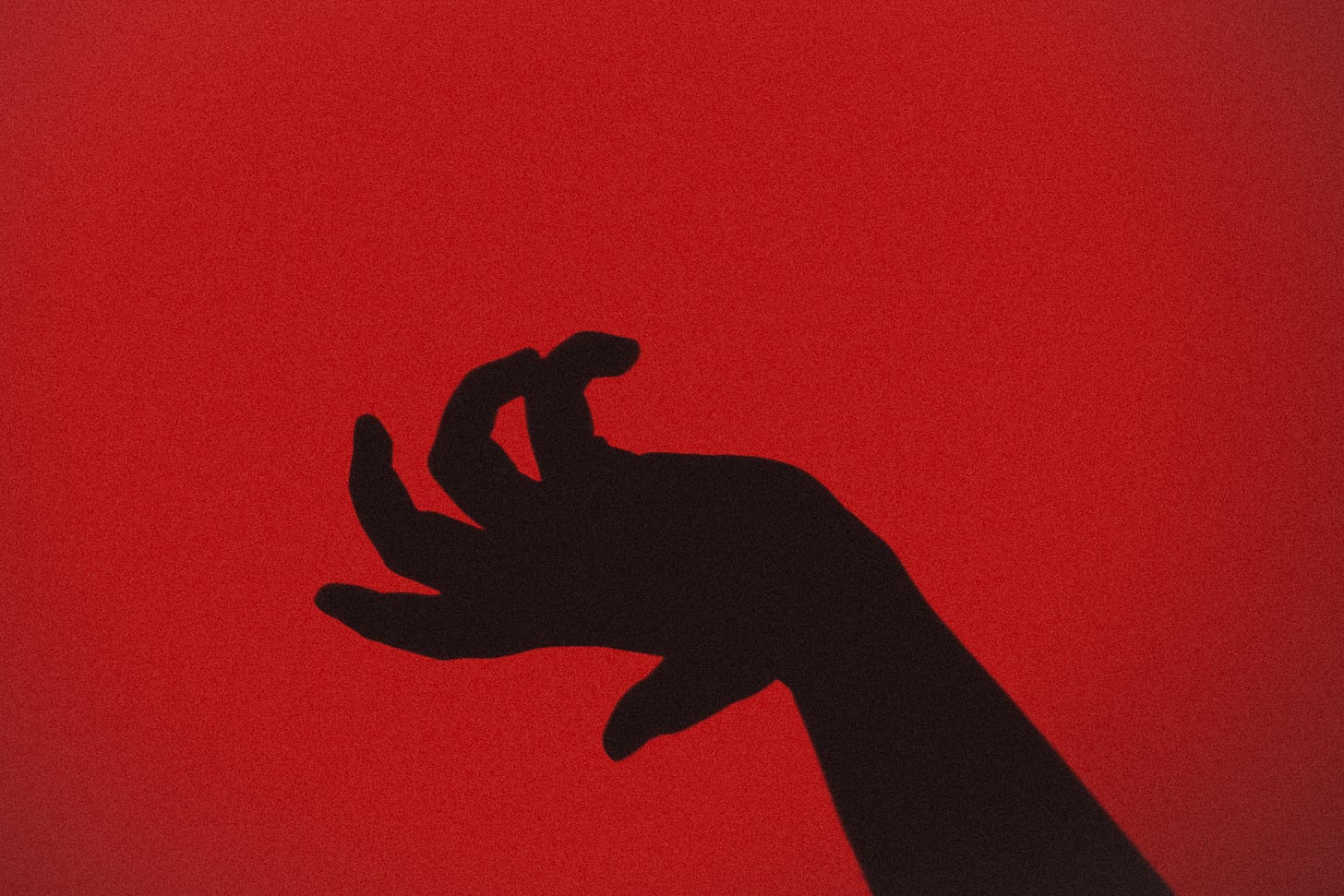A Limb & A Moral Dilemma
So I’ll admit, I’ve recently done an extensive marathon of the series Chicago Med as I was in bed recovering from a bout with you-know-what (yes, it finally got me). One episode in particular caught my attention. In it, a patient is admitted into a psych ward and is restrained after attempting to cut off his own arm. The patient’s sense of self, according to Dr. Charles, the resident psychiatrist at the fictional medical facility, does not extend to his left arm. The patient’s sense of discomfort is extreme enough that not only does he beg for medical professionals to have his arm amputated, he’s willing to deal with the massive pain of doing so himself when that option is unavailable to him. You can watch the scene for yourself.
This presents a true dilemma. On the one hand, cutting of a limb is irrational and is causing pretty severe self-harm. But what if the patient is rational about everything else in their lives except this one thing? What if that one thing is resolved as per the patient’s desires, everything else will fall into place just fine?
Of course, there are therapeutic approaches that can be tried first: Teaching the patient to accept the arm, teaching him to ignore it, and teaching him to think of it as something else. If that fails, maybe it would help to tie it down, so that it would cause him less discomfort to have it as present on his body. And, of course, medicine. But what if none of these approaches work? What if the patient continues to suffer? What if by cutting off the arm, despite now missing a limb, the patient is indeed happier and in less distress? Is our need for the patient to have his arm because we think it’s better for his well-being actually more harmful for his well-being?
Now, what if instead of one arm, the patient needs to cut off all four limbs in order to feel okay? Does that change things?
Do we accept that perhaps some people are born a certain way that causes them to need to not have four limbs in order to avoid feeling great anguish? Yes, this is almost definitely a psychiatric condition, but if we have no other cure for it but to cut off the limbs, should we not proceed? Then again, how do we know for sure that if we cut all four limbs the patient will stop feeling this anguish? What if this ‘treatment’ works for some patients but does not work for others? What if some patients go on to have happy lives, without a limb, whereas others continue to suffer but now are also missing a limb and are full of regrets.
They knew the risks, they made a decision, they insisted on going forward…should the doctor have pulled the plug or respected their right to choose?
What if the doctor doesn’t respect the patient’s right to choose and the patient does more harm to themselves as result by trying to fix things on their own?
On the other hand, what if the doctors restrain the patient, and in a few years another treatment becomes available, or the psychological condition resolves?
Physicians take the hippocratic oath: “Do no harm.” But what does more harm, cutting off someone’s limbs, or the distress that leaving them causes the patient? To me, these are not easy questions to answer. Hence, it is a moral dilemma.
What do you think? Leave a comment below.
Thank you for keeping me company. Although I try to make many posts public and available for free access, to ensure sustainability and future growth—if you can—please consider becoming a paid subscriber. In addition to supporting my work, it will also give you access to an archive of member-only posts. Please also share, like, and comment. Got ideas for future posts? Email me.
[Photo by Ari Spada on Unsplash]
Who am I? I’m a writer with an overactive imagination and a random mind. Outside of Substack, you’ll find my work in publications such as Newsweek, WIRED, Variety, The Washington Post, The Guardian, Esquire, Playboy, Mashable, CNN Travel, The Independent, and many others.
Here, you can expect to see little essays on topics ranging from self-censorship, how to have better conversations and word misappropriation to whimsical thoughts about losing imaginary friends and insomnia. Anything goes. Here, there’s no “left,” “right,” or even “middle”. Just random thoughts. And everyone’s welcome to be part of the conversation—in fact, it’s encouraged.





That episode does a brilliant job hitting some key aspects of true dysphoria that most people (including many who should know better) miss, either due to naïveté or on purpose.
- It starts very young. Usually 3-4 years old is when it sets in, and it persists for your entire life. You can attempt to treat it, but there is no known way to remove the feeling from the individual.
- It is EXTREMELY rare. The DSM-5 estimates that it can be as rare as 1 person in 20,000 (0.005%).
A someone who lives with dysphoria, my opinion is that if the dysphoria is legitimate, then there will be no regret later on if the body is augmented to match the desired self. My dysphoria happens to be currently medically impossible, so I can only hope that science gets to a point to allow me to realize my desired self before I die. If my thing was not having an arm, I would have removed it years ago, and since dysphoria lasts forever, I would never miss it.
This brings me to what I believe is the true crux of the issue: distinguishing legitimate dysphoria from things like autism, social contagion, psychosis, childhood imagination, etc. This is why I believe that true dysphoria can only be diagnosed well into adulthood, and only when all other possible conditions are ruled out. When inexperienced or ideologically-driven clinicians make type I errors is when things go tragically wrong down the road, and that's what we're seeing way too much of today.
There are plenty chronic physical conditions that we live with. We live with pain, some of us lifelong physical pain. There no such thing as "the right to a cure".
If I believe irrationally that taking antibiotics every day for life when I don't have an infection or that chemotherapy would really do me good even though I don't have cancer, no doctor would consider it. Because my belief that I would feel better does not meet the burden of proof of efficacy for treatment.
People often think that they are missing just that one thing to be happy: more money, a house, plumper lips, prettier spouse, you name it. When they get those things, they more often than not remain unhappy.
This is less of an ethical conundrum than people want to believe. If one wants to cut an arm, maybe we can't really stop it, but no, we in general and the medical professionals in particular should not participate in literal insanity.